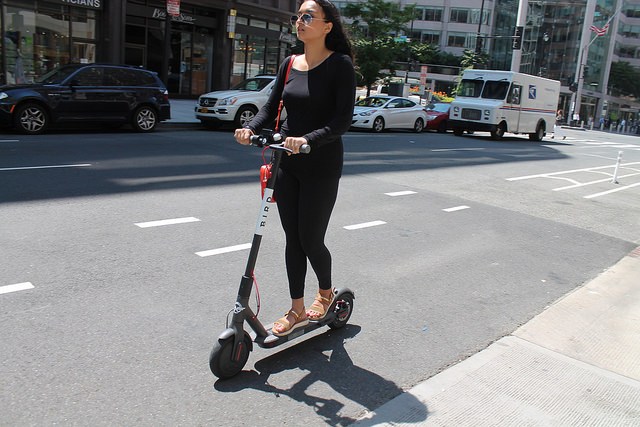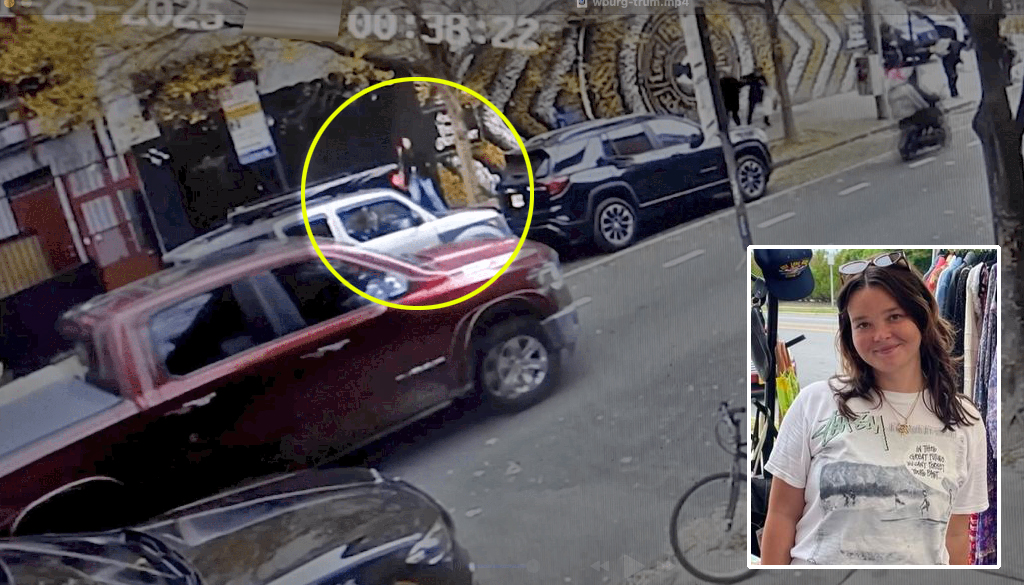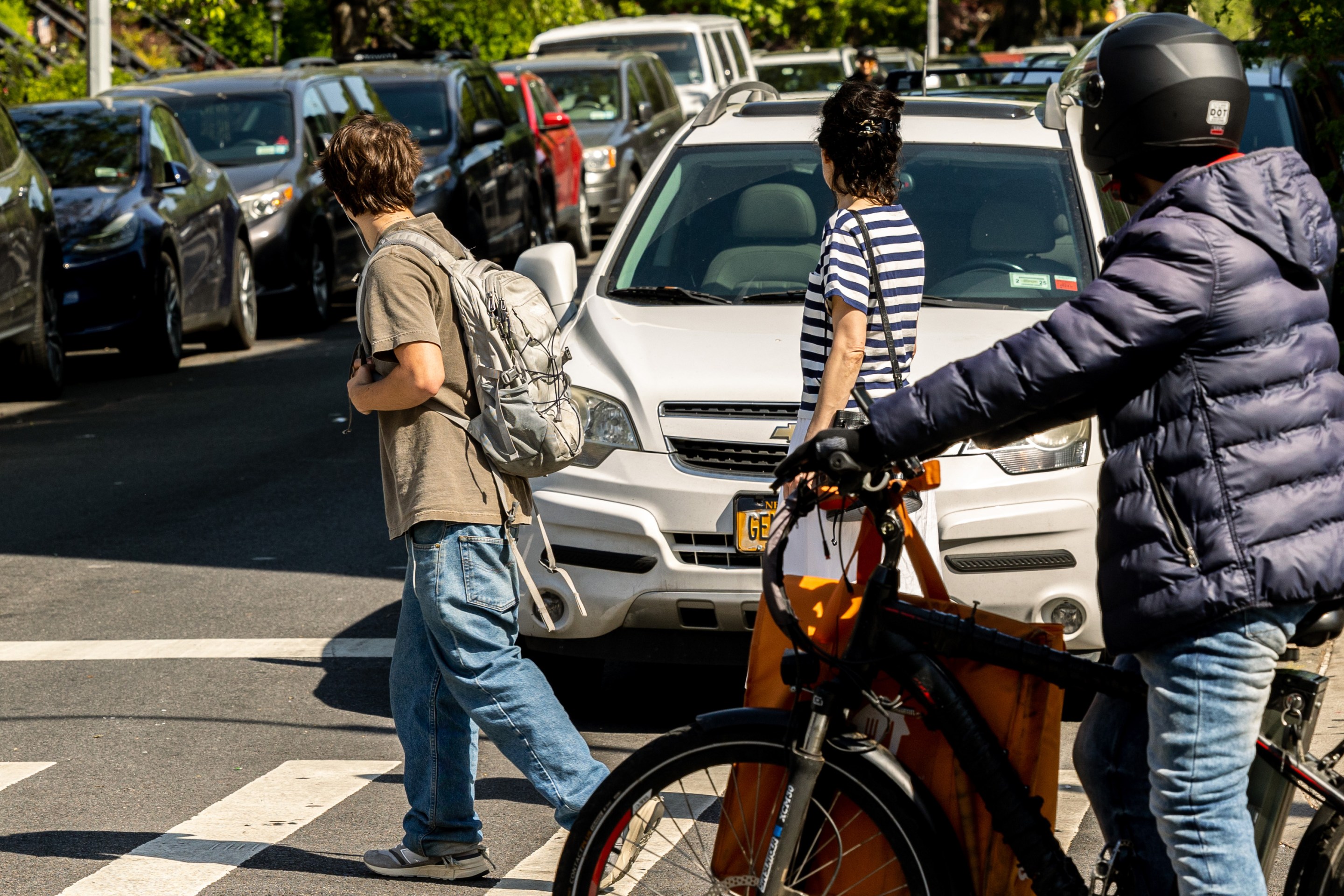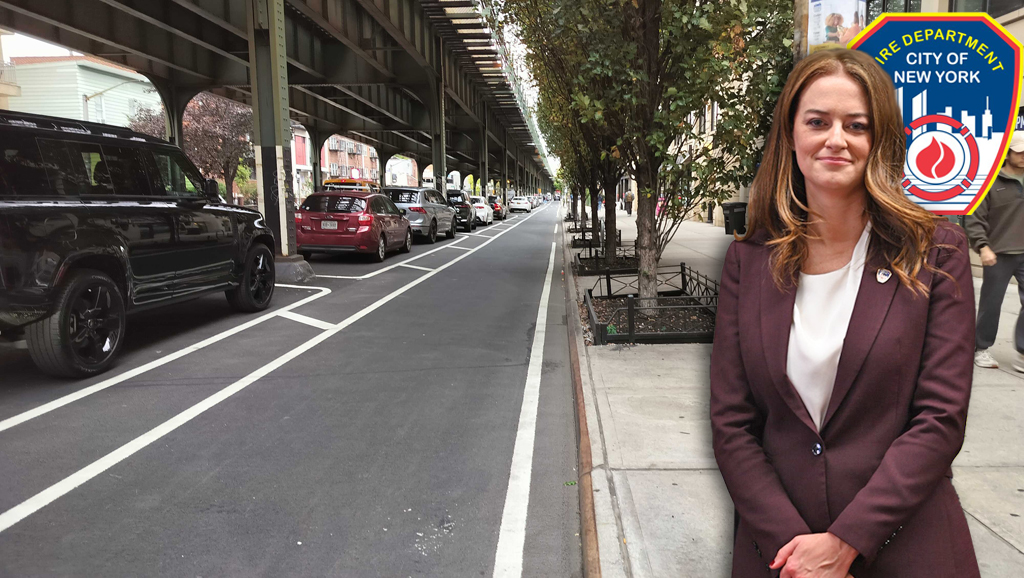Ring the bells! E-scooters and legalized e-bikes are coming to the New York region!
Just not to New York State — not yet, at least.
New Jersey Gov. Phil Murphy on Monday signed legislation legalizing e-bikes and e-scooters on city streets, provided the vehicles top out at 20 and 19 miles per hour, respectively.

The governor's signature came after the bill overwhelmingly passed both houses of the New Jersey state's legislature. Similar legislation is pending — and perhaps endangered — here in New York.
"New Jersey has beat us to the punch and New York cannot stay behind," said Queens State Senator Jessica Ramos, the New York bill's sponsor.
After successes in California and other cities across the country, e-scooter companies are hoping to break into the New York region, where they hope a combination of low car ownership and heavy congestion will lead to profits.
But e-scooters are illegal to operate on New York City streets, as are e-bikes. Legislation to change that stalled in the city council earlier this year after Council Speaker Corey Johnson's lawyers determined state authorization was necessary — because the state DMV requires registration for any vehicles that aren't human-powered.
Last month, Ramos and fellow Queens Assembly Member Nily Rozic introduced legislation that would create four new non-auto vehicle categories, in line with the industry’s preferred classifications: pedal-assist e-bikes with maximum speeds of 20 mph; throttle-powered e-bikes; pedal-assist e-bikes with maximum speeds of 28 mph; and e-scooters.

The New Jersey bill takes a similar approach, but does not authorize any e-bike models whose speeds exceed 20 miles per hour.
Such legislation, if enacted in New York, would leave the city's most prominent e-bike users — bicycle delivery workers — out in the cold. Those workers, many of whom are immigrants well into their 40s, 50s, and 60s, typically use throttle-powered bikes that do not have max speeds.
Before e-scooter companies entered the scene, e-bike legalization had languished in Albany for years. After those companies faced backlash elsewhere for deploying scooters without government approval, industry bigwigs opted for a by-the-books approach in the New York region. With the green light from Gov. Murphy, Lime plans to deploy its e-scooters in Hoboken "next week," the company said in a statement.
Ramos and Rozic's bill faces opposition from the legislature's Manhattan delegation, who have been inundated with anecdotal complaints about the bikes in recent years, even though statistics show that e-bike riders have caused a minuscule number of pedestrian injuries.
Faced with burdensome NYPD enforcement, e-bike workers and their supporters have said they're willing to get e-bike licenses and register their vehicles — if the law only allowed it. Alternatively, advocates have pushed the city to establish a program to help them convert their bikes from throttle-powered to pedal-assisted. New York City legalized the latter last year.
"By legalizing e-bikes and e-scooters, Governor Murphy is standing up for immigrant rights, reducing carbon emissions, and reducing traffic," Ramos said. "We must follow suit this session and ensure we are offering as many transportation alternatives to cars as possible."
Transportation Alternatives, a member of the coalition supporting Ramos' bill, echoed her comments.
"The state legislature must act this session to protect food delivery workers and to get more cars off New York City streets. E-bikes and e-scooters across the United States are replacing car trips at astonishing rates. More than 30 other states have legalized e-bikes already. Our state legislature is complicit in enabling the City of New York's draconian enforcement against food delivery workers and they must act to rectify it and bring the city into the 21st century," said Marco Conner, the group's interim executive director.






